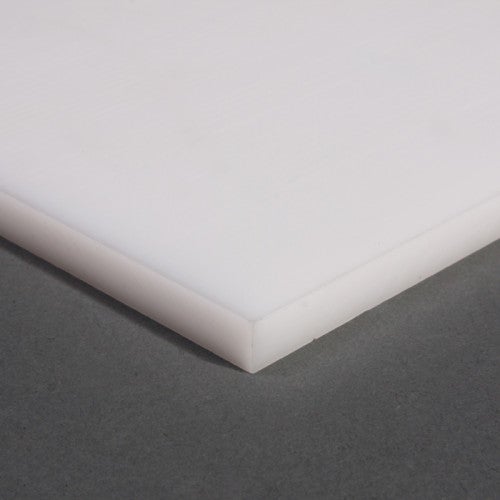Description
HDPE Natural Plastic Sheet – Lightweight, Food Grade, Versatile Engineering Plastic
Our HDPE Natural Plastic Sheet (PE300 Grade) is a highly durable and versatile thermoplastic, available in thicknesses from 1mm to 5mm. With excellent chemical resistance, low moisture absorption, and high impact strength even at temperatures as low as -50°C, it is ideal for a wide range of industrial and commercial uses.
Widely known as "chopping board material," HDPE is food compliant and safe for direct food contact, making it perfect for the food industry, medical equipment, tank linings, gaskets, and production line components.
Key Features:
-
Operating Temperature Range: -50°C to +80°C
-
Food Safe: Certified for direct food contact
-
Excellent Chemical Resistance: Withstands acids, bases, and cleaning agents
-
Low Friction Surface: Ideal for sliding and wear applications
-
Low Water Absorption: Maintains performance in damp or wet environments
-
Lightweight & Durable: Density of 0.96 g/cm³
-
Good Electrical Insulation
-
Easily Machined: Suitable for CNC and conventional methods
Common Applications:
-
Commercial chopping boards
-
Food processing equipment
-
Pumps and tank linings
-
Industrial wear strips and guard rails
-
Medical components
-
Gaskets and seals
Technical Overview:
| Property | Value |
|---|---|
| Material Type | High Density Polyethylene (PE300) |
| Thickness Range | 1mm – 5mm |
| Density | 0.96 g/cm³ |
| Finish | Gloss on one side, matte on the other |
| Colour | Natural |
| Food Safe | Yes |
| Chemical Resistance | Excellent |
Why Choose HDPE Natural Sheet?
-
Economical and long-lasting
-
Excellent resistance to wear, chemicals, and moisture
-
Ideal for environments requiring hygiene and impact strength
-
Suitable for both domestic and industrial use
Note: This product is not suitable for applications that require bonding, high-load impact resistance, or high flame retardancy. If bonding or higher impact tolerance is required, consider Nylon or Acetal (POM) as alternatives.

